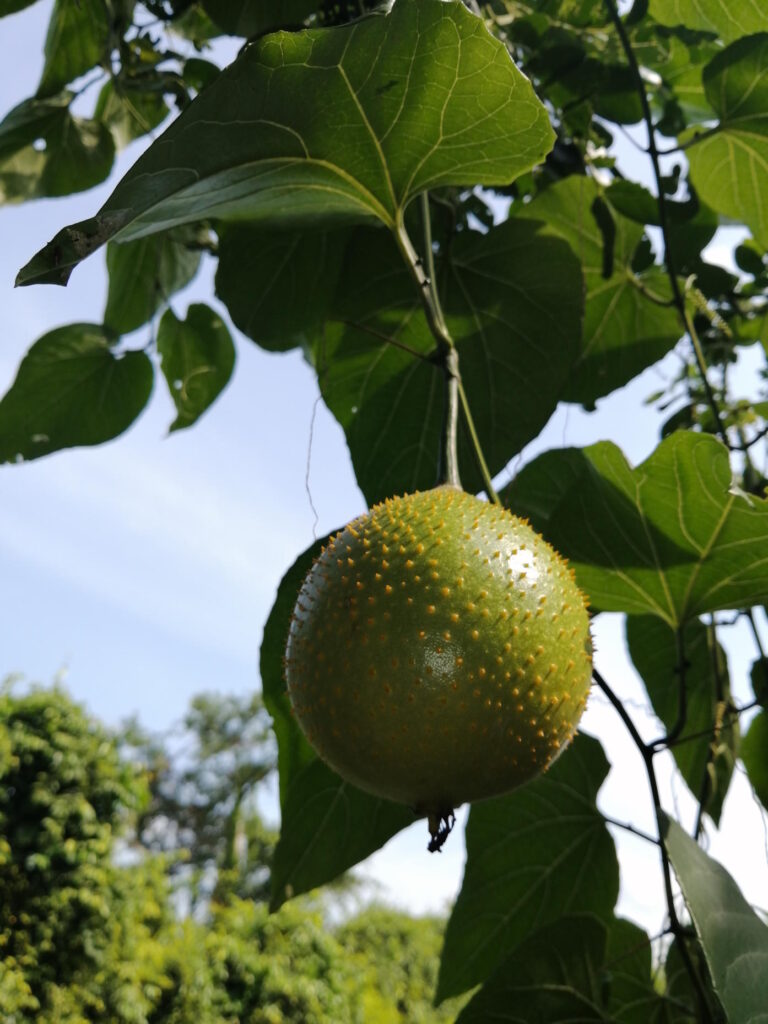I love sweet food. Anything in the range of sweet to sour I can handle, but not bitter. Definitely not anything that tastes weird and twists your tongue. But nature isn’t always sweet. It doesn’t just offer a tooth ache; it gives medicines and nutrients my body needs and sometimes it’s not found in the sweet stuff. It’s in the bitter vegetables and plants.
When we first harvested our Ampalaya, bell pepper, Kangkong, and Kamote, I was very proud of our achievement. I was excited to cook our very own food grown from our farm, but I noticed that these vegetables that I was used to eating from the market tasted a little different. They were more bitter, or sometimes their taste would be spicier or concentrated; as if I ate five bell peppers rather than one.
I was a bit annoyed at this because not only am I trying to be healthy by eating more veggies, I also have this goal of eating only veggies from our homestead natural farm. However, the taste was different and it wasn’t fun to eat!
My husband loved the taste of our vegetables. “You’re not used to bitter vegetables because your tongue has adapted to eating salty or sweet food from the market,” he explained to me. He said I just needed to adapt to the taste. True enough, when I recall food I used to eat, it always incorporated a little sugar or salt in it. Canned or preserved food always had salt and so did packed meat. Fast food is always either very sweet or showered in salt (French fries, I’m talking about you!!!).
I am guilty of indulging myself of too much salt and sugar. “But what about the vegetables in the market? How come the bell pepper tastes bland there, but spicier in our farm?” I asked my husband.
I found out that those vegetables from the market were probably pampered. They were given fertilizers and a lot of water to survive. In the end they didn’t learn to boost their immune system for themselves, and even though they were bigger in size, they were blander in taste. It’s almost like a spoiled kid that got all the things they wanted, but they don’t have any personality.
This was big news to me. Have I been eating fake vegetables all this time?! Are the real vegetables more unique in taste, more diversified, and stronger in flavor?! And if that’s true, are there more flavors in the world that we don’t even know yet? All my life I thought bell peppers should be sweet and kamote only have very little taste, but our vegetables proved me wrong.
It’s almost as if their existence were shown more wholly in front of me; as if they were telling me that they too have personality.
Because our natural farm doesn’t use fertilizers or chemicals, and we don’t water our plants, our own homegrown vegetables have looked after themselves more than we do. They’ve learned to put effort in their existence, and become a really damn tasty vegetable.
This taste, even though I sometimes don’t like it, is something that I cherish. It’s a testament of how long ago, my ancestors were able to eat more bitter yet healthier food. They weren’t a little chicken like me, feeling scared of eating bitter food.
More than that, it is proof that vegetables can truly save our lives. Eating fresh, bitter and non-sweet food have more nutrients and vitamins in it. That’s why bitter is better.
To this day I am still reprogramming my brain into accepting more bitter and spicy food. I have a long way to go, but learning to love the true taste of nature brings me more connection to my food and it reveals to me the power of vegetables and what they truly mean.







